NYSAM Annual Conference Speakers
(in order of presentation)
Public Policy Day: Friday, February 11, 2022
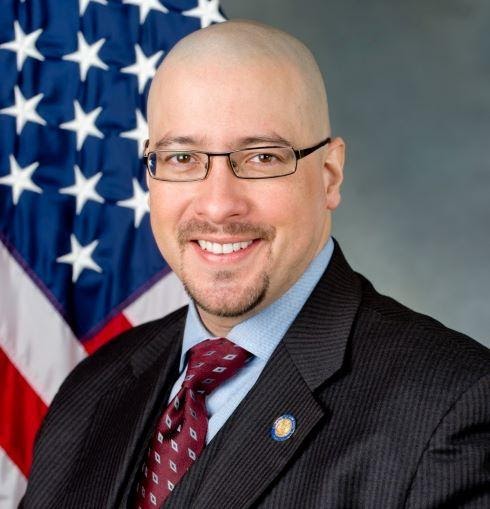
Gustavo Rivera, NYS Senator, Health Committee Chair, Joint Task Force on Opioids, Addiction, and Overdose Prevention Co-Chair
State Senator Gustavo Rivera represents the 33rd Senate District in the Bronx, which includes the neighborhoods of Kingsbridge Heights, Belmont, Fordham, University Heights, Van Nest, East Tremont, Crotona and Mount Hope.
Since taking office, Senator Rivera has focused his efforts on addressing issues of health inequity both legislatively and on the ground.
In 2018, his passion to improve the health of New Yorkers led Majority Leader Andrea Stewart-Cousins to appoint Senator Rivera as the Chair of the New York State Senate’s Health Committee. As the Chair, Senator Rivera’s goal is to collaborate with his colleagues, stakeholders, and constituents to improve health outcomes, increase access to health coverage, and ensure a financially viable system for the 20 million New Yorkers he proudly serves.
Prior to his appointment as Chair, Senator Rivera served as the ranking member of the Senate Health Committee for six years. As a sitting member of the committee, Senator Rivera passed three laws to ban smoking around schools, after schools, and libraries, and has been a champion of public health and harm reduction policies.
In March 2017, he became the main sponsor of the “New York Health Act,” an innovative bill to create a single payer health system in New York State. In 2011, Senator Rivera launched the Bronx CAN (Changing Attitudes Now) Health Initiative. The goal of this community-oriented health initiative is not only to encourage Bronx residents to develop healthy behaviors, but to shape policies that will help tear down some of the institutional barriers that stand in the way of Bronxites having a healthier lifestyle.
Senator Rivera also worked as a community organizer on New York State campaigns, as well as on President Barack Obama’s 2008 campaign. He has worked as a college professor and briefly was a staff member for U.S. Senator Kirsten Gillibrand.
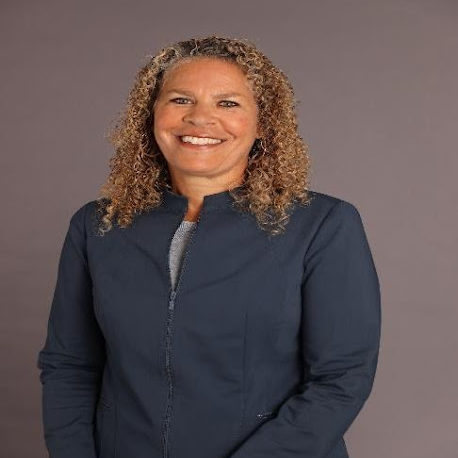
Chinazo O. Cunningham, MD MS
Dr. Cunningham is a physician, researcher, and public health professional who brings over 20 years of expertise in substance use treatment to OASAS. Prior to joining OASAS, she served as the Executive Deputy Commissioner of Mental Hygiene at the New York City Department of Health and Mental Hygiene, was a practicing physician at Montefiore Health System, and a Professor of Medicine, Family and Social Medicine, and Psychiatry and Behavioral Sciences at the Albert Einstein College of Medicine. Dr. Cunningham has more than 20 years’ experience in research, care, and program-development that focuses on people who use drugs. She has also partnered with community-based organizations to develop pioneering programs to promote the health of this population. Dr. Cunningham led one of the first clinics in New York City to integrate buprenorphine into primary care. She has trained hundreds of doctors to treat substance use disorders in primary care. She has also led several research studies and published numerous research articles that focus on treating substance use disorders.
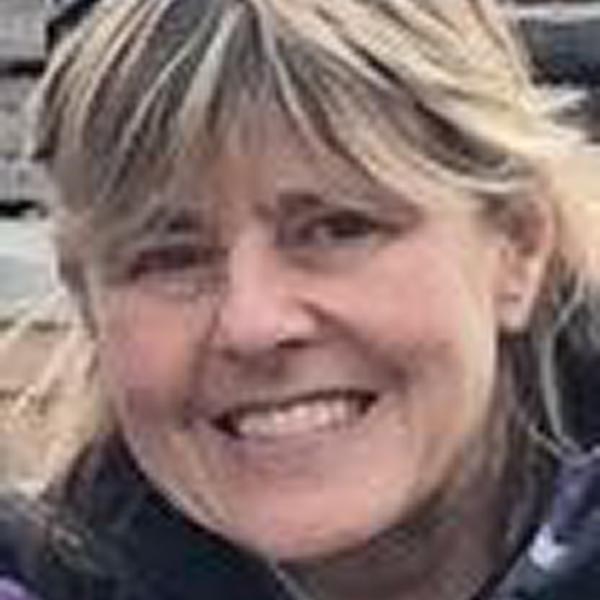
Lisa Skill, MS, MCHES
Health Program Coordinator, Provider Education and Buprenorphine Access Initiative, New York State Department of Health, AIDS Institute, Office of Drug User Health
Lisa Skill is Health Program Coordinator at the NYS DOH AIDS Institute, Office of Drug User Health working on the Provider Education and Buprenorphine Access Initiative.
She coordinates all provider education activities to increase clinicians’ capacity to prescribe buprenorphine in a variety of settings, including primary care, emergency departments, corrections and harm reduction settings. Prior to her work at the NYSDOH she provided statewide training to health and human service providers on working with People Who Use Drugs, Harm Reduction, HIV and Hepatitis. She also did community coordination work for the NYS Office for the Prevention of Domestic Violence and worked as a Harm Reduction Specialist providing harm reduction services and interventions with PWUDs.
She served as the co-chair for the National Public Health Training Center Network and as a member of the NYS DOH HIV Prevention Planning Group.
Ms. Skill holds a Masters degree in Community Health Education and is a Master Certified Health Education Specialist
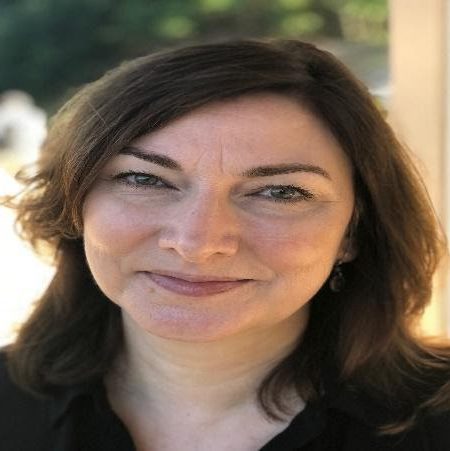
Narelle Ellendon, RN
Narelle Ellendon is a Registered Nurse and an Opioid Program Manager with the New York State Department of Health’s, (NYSDOH), Office of Drug User Health. Ms. Ellendon is the lead in coordinating the expansion of buprenorphine access and other opioid overdose prevention interventions across the state. Prior to working for the NYSDOH, she was the Director of Capacity Building Services for Harm Reduction Coalition, (HRC) overseeing their national training and capacity building services to support the integration and expansion of drug user health interventions, including syringe access services, overdose prevention services, Hepatitis C and HIV prevention, screening, care and treatment. Before immigrating to the US nearly 20 years ago, Ms. Ellendon worked in Australia as an outreach community health nurse with the homeless, drug-using populations and as a registered nurse within correctional facilities, drug treatment and other healthcare settings.
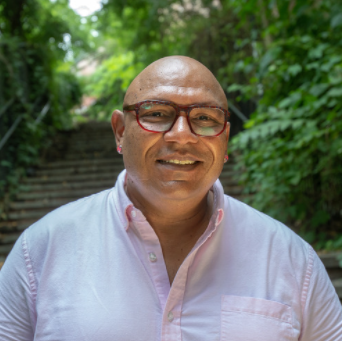
Sam Rivera
Sam Rivera has over 29 years of progressive experience in social services. His primary focus of expertise lies in Criminal Justice/Reentry, HIV/AIDS, Harm Reduction, Addiction/Recovery, and Mental Health. He currently serves as the Executive Director of New York Harm Reduction Educators and Washington Heights Corner Project, two merging harm reduction organizations that provide services to active drug users and sex workers in Northern Manhattan and The South Bronx, many of whom are low-income or homeless as well as of color and LGBTQ. He brings to this role his several decades of cutting-edge service provision experience and a commitment to social justice. He has dedicated his professional career to ameliorating the harms associated with the War on Drugs, racism/sexism, structural inequality, and mass incarceration and will continue to work to end systemic as well as systematic barriers to populations that are most vulnerable.
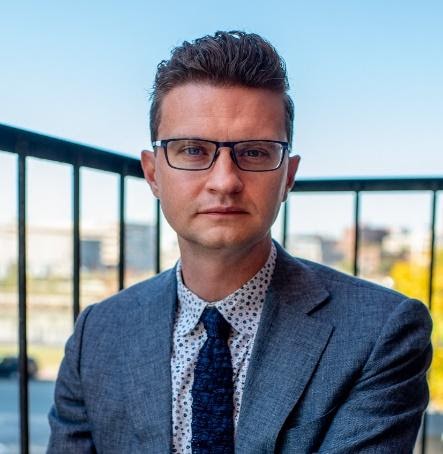
Brandon DL Marshall, PhD
Dr. Marshall is an Associate Professor of Epidemiology at the Brown University School of Public Health. He is also founding director of the People, Place & Health Collective at Brown University. He received a PhD in epidemiology from the School of Population and Public Health at the University of British Columbia. In 2011, he completed postdoctoral training at the Columbia University Mailman School of Public Health.
Dr. Marshall focuses on substance use epidemiology, with a specific emphasis on harm reduction research and overdose prevention. His team evaluates programs and policies that aim to improve the health and well-being of people who use drugs. He has published more than 275 scientific publications and three book chapters. He has received numerous awards for his work, including the 2016 Early Career Award from the Society for Epidemiologic Research, and the 2019 Early Career Public Health Research Award from the Association of Schools & Programs of Public Health.
He has served on numerous task forces to address the nation’s overdose crisis and is an ad hoc member of the FDA drug safety and risk management advisory committee. Dr. Marshall also serves as an expert advisor to the Rhode Island Governor’s Overdose Prevention & Intervention Task Force.

Aaron Fox, MD, MS
Dr. Fox is an Associate Professor of Medicine in the Division of General Internal Medicine at Albert Einstein College of Medicine/Montefiore Medical Center. He is a primary care physician in a community health center in the South Bronx and a researcher studying opioid use disorder treatment and the criminal justice system. Dr. Fox is the Director of the Bronx Transitions Clinic, which links formerly incarcerated individuals with chronic health conditions to medical care. He also develops and studies clinical programs that improve access to and effectiveness of buprenorphine treatment for opioid use disorder. These studies have examined peer navigation, group medical visits, and buprenorphine treatment provided at syringe exchange programs.
Dr. Fox graduated from the Albert Einstein College of Medicine in 2004, completed residency training at Montefiore in the Primary Care/Social Internal Medicine Residency Program in 2007, also serving as the PC/SM Chief Resident in 2008, and he received a Masters in Clinical Research from Einstein in 2012. In addition to providing clinical care and research, Dr. Fox also spent 10 years teaching a medical student elective: “Research Based Health Activism”.
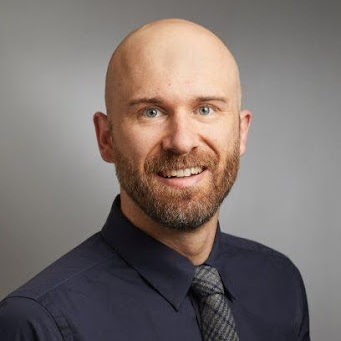
Paul Joudrey, MD, MPH
Dr. Joudrey is an Assistant Professor in the Yale School of Medicine and a Yale Drug use, Addiction, and HIV Research (DAHRS) Scholar. Dr. Joudrey is committed to improving the health of people with substance use disorders by expanding access to high quality evidence-based care. This includes research aiming for greater equity in access to medications for opioid use disorder, particularly methadone in rural communities, as well as improving the adoption of medications for alcohol use disorder within hospital settings. He utilizes geospatial and implementation science methods to inform novel strategies for expanding access to these underutilized addiction treatments. Certified as a general internist and addiction medicine specialist, he serves as an attending physician within the Yale New Haven Hospital Primary Care Clinic, as well as attending physician for the Ledge Light Health District and Alliance for Living Coordinated, Access, Resources, Engagement, and Support (CARES) program which provides low barrier buprenorphine in New London county. He received his undergraduate degree from Case Western Reserve University and his medical degree from New York University. Dr. Joudrey completed residency training at Montefiore Medical Center in the Primary Care Social Internal Medicine program and completed the National Clinician Scholars Program fellowship at Yale School of Medicine.
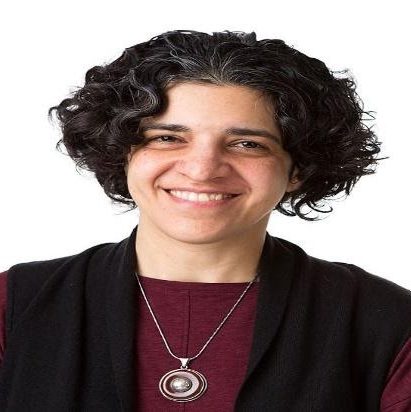
Shadi Nahvi, MD. MS
Dr. Shadi Nahvi is an Associate Professor in the Departments of Medicine and Psychiatry and Behavioral Sciences at the Albert Einstein College of Medicine, and Co-Director of the General Internal Medicine and Addiction Medicine Fellowship Programs. Her research focuses on optimizing quality of life and health outcomes among persons with substance use disorder.
Dr. Nahvi’s research is grounded in over a decade of clinical experience as a primary care physician caring for persons with opioid and other substance use disorders. Her primary research focus is optimizing the efficacy and delivery of tobacco cessation treatments among persons with co-occurring substance use disorders. Currently, she is Principal Investigator of a NIDA R01-funded randomized, 2 x 2 factorial trial of directly observed and long-term varenicline treatment among smokers with opioid use disorder. She has also led a KL2 Career Development Award-funded, randomized, placebo-controlled pilot trial of varenicline for smoking cessation among smokers with co-morbid substance use disorder, a study of health system-level interventions to increase documentation and treatment of tobacco use among substance use disorder counselors, and a randomized trial of the efficacy of directly observed varenicline provided at a methadone clinic for promoting smoking cessation and enhancing adherence.
Dr. Nahvi graduated from the Brown University School of Medicine in 2001 and completed residency training in Primary Care Internal Medicine at Bellevue Hospital and New York University Medical Center in 2004. She then joined the faculty in the Albert Einstein College of Medicine Division of Substance Abuse as the Medical Director of a substance abuse treatment clinic. From 2006-2008, Dr. Nahvi completed a faculty fellowship supported by the Bronx Center to Reduce and Eliminate Ethnic and Racial Health Disparities, a NIH-funded health disparities Center of Excellence. Through this fellowship, she completed the Einstein Clinical Research Training Program and received a MS in Clinical Research Methods.
Dr. Nahvi has served on numerous national advisory committees, including serving as a member of the Advisory Committee of the Society for Research on Nicotine and Tobacco Health Disparities Network, and co-chair of the Evaluation Committee of the Health Disparities Network; a member of the NY State Department of Health AIDS Institute’s Guideline Committee for the Care of Substance Users; and a Steering Committee member of the NY State Department of Health AIDS Institute’s Tobacco Cessation Improvement Campaign.

David Frank, PhD
David Frank is a Medical Sociologist at New York University’s Center for Drug Use and HIV/HCV Research. He is also a person who uses drugs and who has been on methadone maintenance treatment for more than 15 years. Dr. Frank’s work focuses on opioid use, opioid use treatment programs like medication assisted treatment (MAT), and the structural and legal context that opioid use and treatment occur within. His work specifically examines the role of structural forces, like criminalization and the War on Drugs, in the behaviors, decisions, and outcomes of people who use illegal drugs. Dr. Frank has strong ties to harm reduction and drug-user advocacy groups and uses those relationships to produce research that is both ethically-conducted, and grounded in the real-world experiences of the populations he studies. He is committed to using his position as a scholar to help end the War on Drugs.
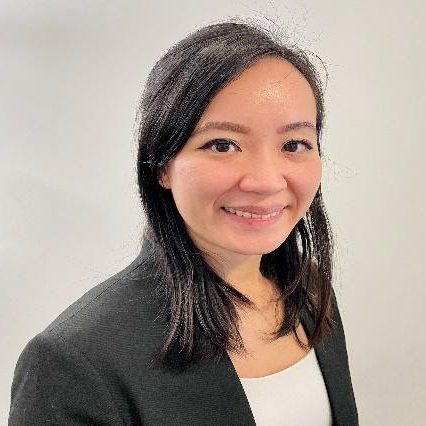
Celyn Ng, MPharm, MPH
Celyn Ng, MPharm, MPH is a Project Manager at the Bureau of Adult Treatment Services, NYS Office of Addiction Services and Supports. Prior to working in NY, Celyn was a community pharmacist in the UK providing various services including Medication-Assisted Treatment and needle exchange services within pharmacies. Recently, she managed the NYC Medication Delivery System in conjunction with the NYC Department of Health and Mental Hygiene, and the Coalition of Medication-Assisted Treatment Providers and Advocates, with the goal of ensuring patients continue to have access to methadone treatment while in isolation or quarantine due to COVID-19.
Celyn graduated from the School of Pharmacy at the University of Nottingham, UK, and the School of Global Public Health at the New York University.
Scientific and Treatment Conference: Saturday, February 12, 2022:
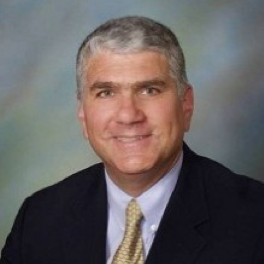
Edwin A. Salsitz, MD, DFASAM
Dr. Edwin A. Salsitz has been an attending physician in the Mount Sinai Beth Israel , Division of Addiction Medicine, New York City, since 1983, and is an Associate Clinical Professor of Psychiatry at the Mount Sinai School of Medicine. He is the principal investigator of the Methadone Medical Maintenance (office-based methadone maintenance) research project. Dr. Salsitz is certified in Addiction Medicine by the American Board of Preventive Medicine, as well as by the Board of Internal Medicine and Pulmonary Disease. He has published and lectures frequently on addiction medicine topics.
Dr. Salsitz is a course director for ASAM sponsored Buprenorphine and REMS safe opioid prescribing trainings and is a lead mentor in the PCSS-MAT mentoring program. He has co-chaired the ASAM Review Course, the ASAM Common Threads Course, the ASAM State of the Art course and is a reviewer for the Journal of Addiction Medicine and Drug and Alcohol Dependence. He is the chair of the ASAM REMS course on safe and effective prescribing of opioids. Dr. Salsitz was the Co-chair of the ASAM CME committee and Chair of the New York Society of Addiction Medicine CME and Education committee.
Dr Salsitz teaches addiction medicine at the Icahn School of Medicine at Mount Sinai, to third year medical students, masters of science students, neuroscience PH.D candidates, and psychiatry residents. He is a frequent contributor and presenter at the Addiction Club, lead by Dr. Hurd.
Dr. Salsitz is the recipient of the 2014 ASAM Annual Award, and the 2018 ASAM Annual Educator of the Year Award.
Dr. Salsitz is the recipient of the 2021 NYSAM Lifetime Achievement Award.
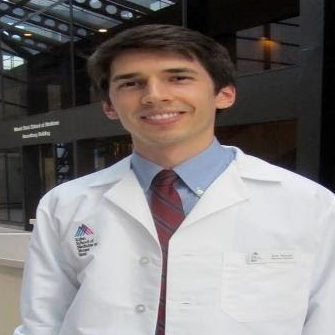
Eric Woods, MD
Dr. Woods did his medical school training at the Icahn School of Medicine at Mount Sinai, completed residency at Montefiore’s Primary Care and Social Internal Medicine Program, and is now a Clinical Instructor at Mount Sinai where he spends his time teaching residents and seeing patients with substance use disorders at the REACH clinic.
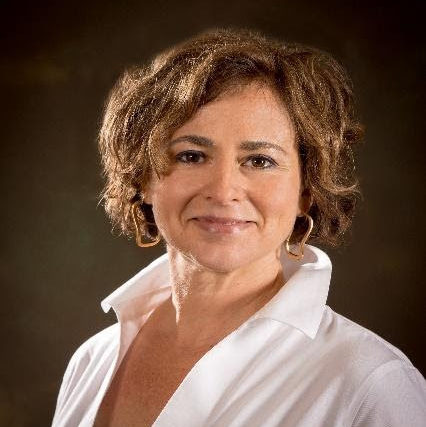
Justine Waldman, MD
Justine Waldman is Board Certified in Addiction Medicine, Emergency Medicine, and a Fellow of the American College of Emergency Physicians. Since December of 2016, she has been providing Low Threshold Medications for Addiction Treatment (MAT), Hepatitis C treatment and acute care to People Who Use Drugs at the Syringe Service Program (SSP) at the Southern Tier Aids Program in Ithaca, NY. She is currently the CEO and CMO of Reach (Respectful, Equitable Access to Compassionate Health) Medical in Ithaca, NY which opened in February of 2018. REACH houses a medical practice offering integrated primary care and low threshold harm reduction services for people who tend to face stigma in the current medical system. Reach Medical offers primary care, MAT, viral screening, vaccination and treatment and on demand behavioral health care. Since the Spring of 2020, REACH has been growing a robust outreach program staffed by individuals with lived experience who offer viral screening, vaccination and treatment, acute primary care and MAT visits via telehealth. In addition, REACH is the administrative home for case management for the Ithaca Law Enforcement Assisted Diversion Program (LEAD).
REACH has an established Peer Advisory Board in which peers are provided stipends through a local foundation grant to advise REACH on various aspects of our organization, e.g., service delivery, and research. REACH has an increasingly renowned Research Department steeped in bringing the REACH model to scale (PEW grant) and studying the outcomes that are being achieved in a rural health equity setting (HRSA grants).
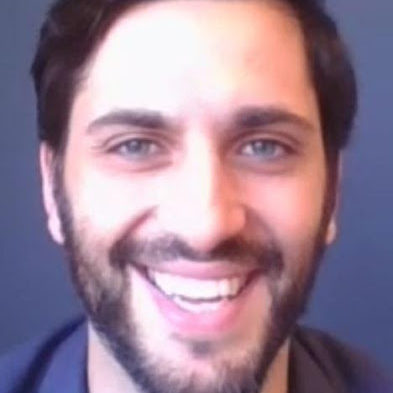
Daniel Schatz, MD
I am passionate about serving vulnerable patients experiencing addiction issues. Many of these individuals have experienced a life filled with trauma, violence, oppression, and now stigma that prevents them from receiving life-saving treatment that can drastically improve their quality of life. I am dedicated to identifying and addressing barriers to their care, implementing evidence-based harm reduction policies and programs, treating the entirety of the person, and educating healthcare professionals and the community about addiction.
In my current role as the Director of Program and Policy in the Office of Behavioral Health at NYC’s Health + Hospitals I provide clinical oversight of our addiction initiatives throughout our system from the emergency department, to inpatient care, to outpatient behavioral health and primary care, as well as at OASAS certified clinics. Initiatives in the emergency department include oversight of our emergency department SBIRT teams, development of a new policy and procedure regarding the initiation of buprenorphine, implementation of the MATTERS (Medication Assisted Treatment and Emergency Referrals) Network platform, and development of a new policy and procedure regarding the initiation of buprenorphine, as well as development of numerous tools and resources to improve care. On the inpatient side, I provide clinical oversight to our addiction consultation services. I developed and implemented a system wide transition to a symptom triggered alcohol withdrawal protocol. I also oversaw several optimizations including methadone and buprenorphine inpatient orders, policies and procedures at our hospitals. In the outpatient setting I helped start up several primary care addiction sites, improved screening workflows and referrals through e-consult, and brought onto formulary a digital pharmaceutical therapeutic for contingency management and cognitive behavioral therapy. I also developed an innovative virtual buprenorphine clinic rapidly during the pandemic, in addition to starting several ancillary withdrawal clinics. System wide I have given dozens of grand round lectures, numerous departmental talks, led multiple addiction focused ECHO (Extension in Community Healthcare Outcomes) curriculums, and am the first contact for any addiction related clinical issue. I also helped our system develop reports, registries, and the integration of a cascade of care model for opioid use and treatment.
In addition to my administrative role, I continue to provide twenty percent clinical time in two separate primary care buprenorphine teaching clinics. I continue to be passionate about research around topics of addiction education, opioid and alcohol use and treatment, e-cigarette use, and telemedicine.
Working in a large multi-site system, I have learned to garner consensus by starting with the evidence, empowering a panel of experts and leaders throughout the system, and getting approval of councils and executive leadership. I have learned to effectively communicate between a variety of clinical and administrative positions from peer specialists to MDs, from individual clinics to executive meetings, and from the emergency department to specialty clinics and everything in between. I am committed to using all of my skills to improve and more equitably provide health care for all people suffering from addiction.
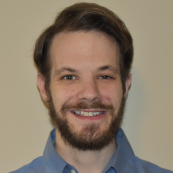
Shawn Matthew Cohen, MD
Shawn Cohen MD is a general internist and 2nd year addiction medicine fellow. As a resident and hospitalist at a public hospital in Seattle, he saw the impact of person-centered care on people who use drugs, leading him back to an addiction medicine fellowship. His interests are in improving hospital care for people with substance use disorder, low dose initiation of buprenorphine, and low barrier outpatient care.
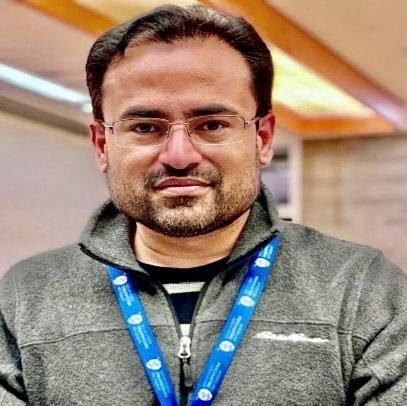
Saeed Ahmed, MD
Saeed Ahmed, MD, is a board-certified Psychiatrist with specialization in addiction psychiatry. After graduating from Sindh Medical College in Karachi, Pakistan, he did an Adult Psychiatry residency at Nassau University Medical Center, New York, followed by a fellowship in Addiction Psychiatry at Boston University Medical Center/VA Boston Healthcare System.
During his residency, Dr. Ahmed served as a Chief Resident as well as on various committees of the residency program. He has been actively involved with the American Psychiatric Association (APA) in various capacities including APA diversity leadership fellow and a fellow member at the APA Council on Addiction Psychiatry. He is on the American Academy of Addiction Psychiatry’s membership committee as well (AAAP). He has served on committees for national and international psychiatry conferences and is currently a member of the editorial board of numerous peer-reviewed journals.
Being a former AADPRT Nyapati Rao/Francis Lu International Medical Graduate (IMG) Fellow, Dr. Ahmed has a distinct interest in mentoring IMGs, who seek residency/fellowship training in the United States.
He is now the Medical Director of the West Ridge Center at Rutland Regional Medical Center in Rutland, Vermont. He currently provides addiction treatment services at West Ridge Recover as well as on the inpatient psychiatry unit for those with and without co-occurring disorders.
Along with his clinical work, he is a widely published author with over four dozen of peer review papers. His research interests include substance use disorders, specifically, micro-induction of Buprenorphine / Naloxone, investigating off-label medications “repurposing” in substance use disorders, increasing access to and reducing barriers to the utilization of available treatments for substance use disorders.
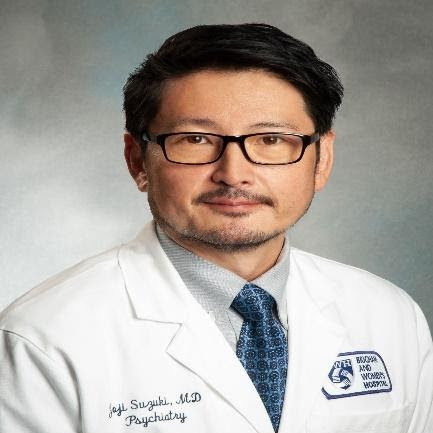
Joji Suzuki, MD
Dr Suzuki is the Director of the Division of Addiction Psychiatry in the Department of Psychiatry, Brigham and Women’s Hospital (BWH), and an Assistant Professor of Psychiatry at Harvard Medical School (HMS). He has been a consultation-liaison psychiatrist in the Division of Medical Psychiatry at BWH, and currently serves as the Director for the BWH Bridge Clinic as well as the Program Director for the BWH Addiction Medicine Fellowship. He has been very active in both medical student and resident education throughout his career. He is a member of Motivational Interviewing Network of Trainers and is the course director for the HMS CME course on motivational interviewing. His research has received funding from National Institute on Drug Abuse (NIDA), CDC, SAMHSA, BWH, and HMS. In 2018 he was awarded a NIDA K23 Career Development Award to receive mentored training in conducting clinical trials, and to study the impact of recovery coaches on hospitalized patients with opioid use disorder. He is a sought-out speaker both locally and nationally, and currently serves on a variety of committees, workgroups, and taskforces for Mass General Brigham, HMS, American Academy of Addiction Psychiatry, Academy of Consultation Liaison Psychiatry, and the State of Massachusetts.
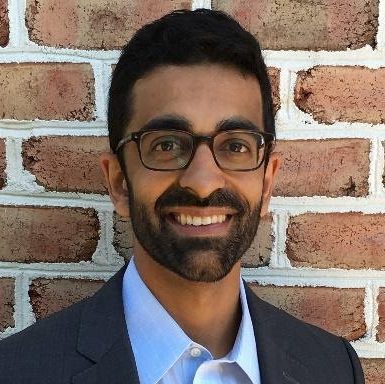
Ashish Thakrar, MD
Dr. Ashish Thakrar is a fellow in the National Clinician Scholars Program at the University of Pennsylvania. He completed internal medicine residency at Johns Hopkins Hospital’s Osler Training Program as part of the Urban Health-Primary Care track and Addiction Medicine fellowship at Johns Hopkins Bayview. His research and advocacy focus on increasing access to treatment for opioid use disorder in the fentanyl era and on improving care for hospitalized patients with addiction.
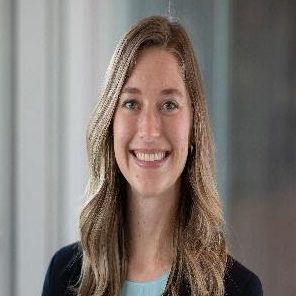
Katherine Mullins, MD
After graduating from Wesleyan University, Katherine spent two years studying obesity and completing an Academy Certificate in Health Disparities at the NIH. She graduated from Georgetown University School of Medicine with distinction as a Population Health Scholar. She completed her residency in the Primary Care and Social Internal Medicine Track at Montefiore in 2021, where she is currently training as an Addiction Medicine fellow. She hopes to improve access to healthcare for people who use drugs by integrating harm reduction and health justice frameworks into physician education and clinical program development.
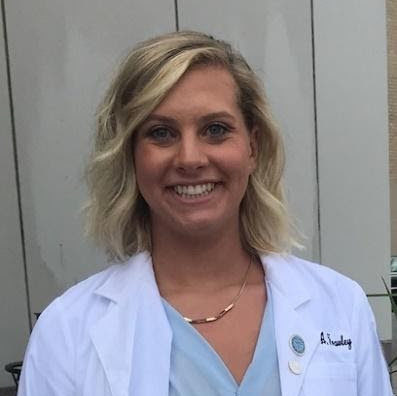
Emma Frawley, MS3, SUNY Upstate
Emma Frawley is currently a third-year medical student at SUNY Upstate Medical University who is pursuing a career in Emergency Medicine with interests in addiction medicine and SUD treatment. She is originally from Massapequa, NY and received her undergraduate degree from Cornell University majoring in Human Biology, Health and Society with a minor in Human Development.
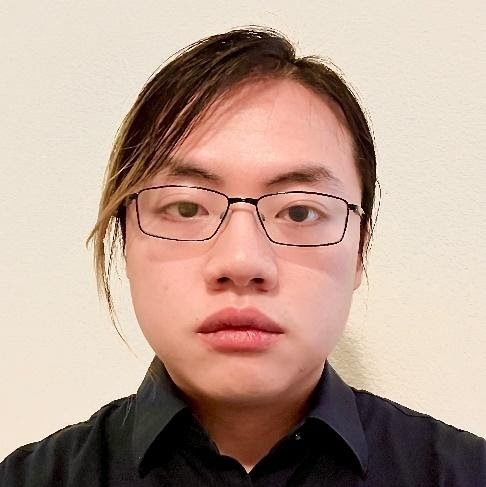
Feng Hsiao, MS3, SUNY Upstate
Feng Hsiao is currently a third-year medical student at SUNY Upstate Medical University from Sacramento, CA. He obtained a B.A. from U.C. Berkeley, where he majored in Molecular and Cellular Biology. He is interested in the field of psychiatry, especially addiction medicine and novel drug therapies to treat drug dependency as well as other conditions such as depression and PTSD.
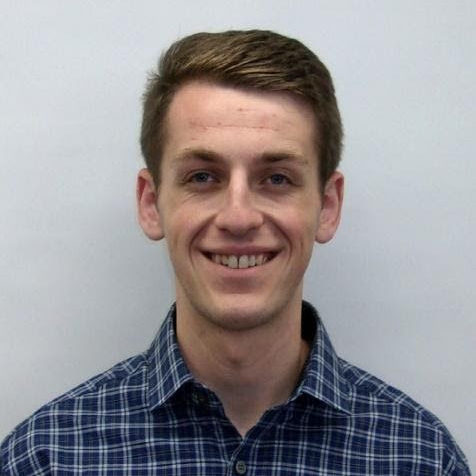
Anthony Corsi, MS3
Anthony Corsi is a third-year medical student at SUNY Upstate Medical University from Massapequa Park, NY with interests in both internal medicine and psychiatry. He received his BS in Integrative Neuroscience and Biochemistry from Binghamton University and upon graduation completed an Honors Thesis in the Department of Psychology studying the heritability of substance use in an animal model.
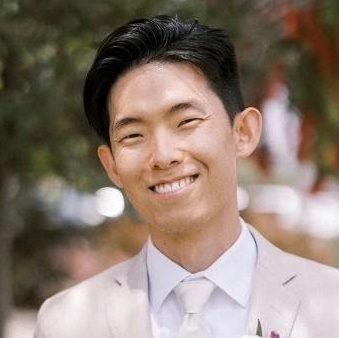
Jin Jin Ma, MS3, SUNY Upstate
Jin Jin Ma, a San Diego, CA native, is a third-year medical student at SUNY Upstate Medical University. He studied Neurobiology and Behavior at Cornell University before teaching 9th grade biology for a few years. Although Jin Jin is still deciding between psychiatry and surgery, he has committed to helping make healthcare more equitable. In his free time, he loves climbing rocks and dancing to great music.
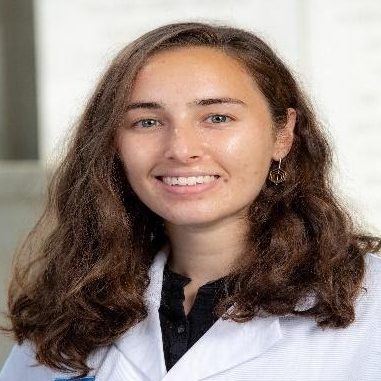
Emma Brezel, MS2, AECOM
Emma Brezel, MBE is a second-year medical student at Albert Einstein College of Medicine and co-chair of the Harm Reduction and Addiction Medicine Interest Group. Before starting medical school, Ms. Brezel was a research assistant for the Montefiore-Einstein Center for Bioethics and a Project Manager for The Rose F. Kennedy Center at Montefiore-Einstein.
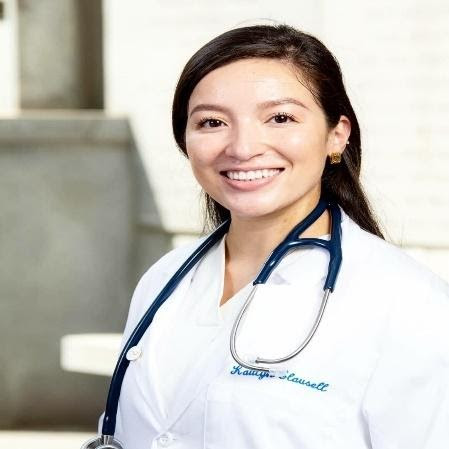
Kaitlyn Clausell, MS2, AECOM
Kaitlyn Clausell is also a second-year medical student at Albert Einstein College of Medicine and co-chair of the Harm Reduction and Addiction Medicine Interest Group. Kaitlyn is also co-chair for the American Geriatric Society and is interested in the intersection between addiction and neurodegeneration in the elderly.
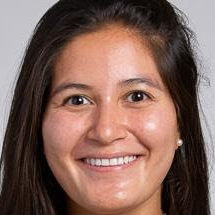
Calla Khilnani, MS2, Icahn SOM at Mount Sinai
Calla Khilnani is currently a second-year medical student at the Icahn School of Medicine at Mount Sinai, where she is a co-leader of the Harm Reduction and Addiction Medicine Interest Group and the Nephrology Interest Group. Along with Nathaniel Saffran and Zerubabbel Asfaw, she works to train hospitalized patients who are at risk of opioid overdose on overdose response and naloxone use. Prior to medical school, she received a B.A. in Biology and Spanish from Williams College.
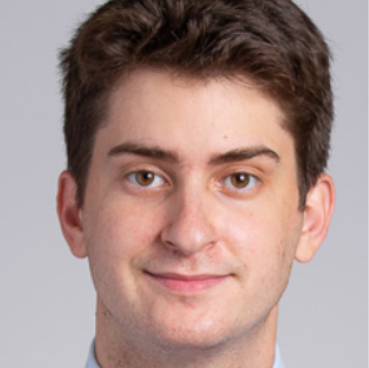
Nathaniel Saffran, MS2, Icahn SOM at Mount Sinai
Nathaniel Saffran is a second-year medical student at the Icahn School of Medicine at Mount Sinai and received a B.A. in Biology from Columbia University. Nathaniel is currently a leader of the Mount Sinai Harm Reduction Club and Aerospace Medicine Interest Group. He works with his exceptional peers, Calla Khilnani and Zerubabbel Asfaw, to reduce opioid overdose deaths by training at-risk patients in the use of naloxone.
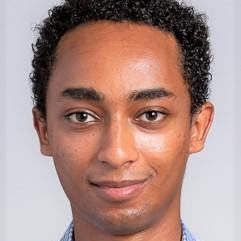
Zerubabbel Asfaw, MS2, Icahn SOM at Mount Sinai
My name is Zerubabbel Asfaw. I’m a second-year medical student at the Icahn School of Medicine with a demonstrated interest in harm reduction strategies for reducing opioid-related fatal overdoses. Along with my fantastic classmates Calla Khilnani and Nathaniel Saffran, I began a medical student-led initiative to provide naloxone training and an overdose prevention kit for patients before discharge from the Mount Sinai hospital. I believe the unreserved efforts of all healthcare workers and pertinent policymakers are essential for ending the current era of addiction stigmatization and fatal overdoses. In addition to harm reduction, I’m interested in the intersection of surgery and global health. In my free time, I enjoy traveling, hiking, and water sports.
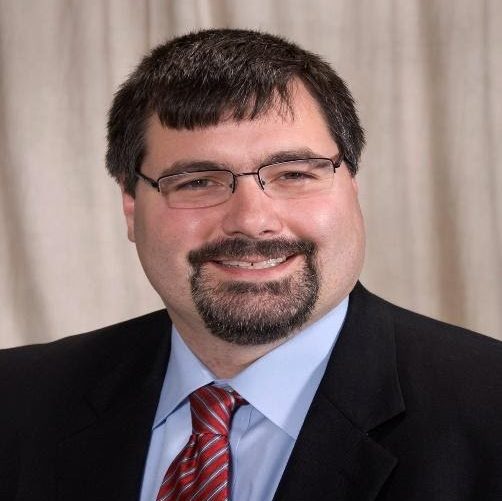
Timothy J. Wiegand, MD, FACMT, FAACT, DFASAM, Moderator
President, New York Society of Addiction Medicine Board of Directors, 2020 and 2021, Thank you for your service
Presented on February 12, 2022 at the NYSAM Virtual 18th Annual Scientific and Treatment Conference
Timothy J. Wiegand, MD, FACMT, FAACT, DFASAM, specializes in Medical Toxicology and Addiction Medicine. He is an Associate Professor of Emergency Medicine and the Director of Toxicology and the Toxicology/Addiction Consult Service at Strong Memorial Hospital and the University of Rochester Medical Center. He also recently became Program Director for the URMC Addiction Medicine Fellowship Program, based out of the Department of Emergency Medicine. Dr. Wiegand is also the Medical Director for Huther Doyle, an addiction services provider in Rochester, New York, where he works in a collaborative model providing a variety of services for patients with substance use disorders and serves as a facilitator for their Project ECHO program on Pain, Opioid Prescribing and Addiction.
In addition to ED, hospital, and clinic work treating drug exposures, intoxication, withdrawal, and assisting with pain management for patients maintained on Medications for Opioid Use Disorder (MOUD) in the ED, hospital, and perioperative setting, Dr. Wiegand is involved with medical education and research in toxicology and addiction. He is the Program Director for the UR Emergency Medicine & Toxicology based Addiction Medicine Fellowship, and he is core faculty for the Emergency Medicine residency at Strong Memorial Hospital. In addition, he lectures locally, regionally, nationally, and internationally on addiction medicine and medical toxicology topics. Dr. Wiegand currently serves on the ASAM Board of Directors as Vice President; and is completing a second term as a board member of the American College of Medical Toxicology.
Dr. Wiegand is also is the President of the New York Chapter of the American Society of Addiction Medicine (NYSAM). Dr. Wiegand is particularly interested in integrating and collaborating between addiction medicine and medical toxicology. To this end, he has Chaired and served on the Addiction Medicine Committee for ACMT and coordinated or participated in many presentations from toxicologists at the annual scientific meeting for ASAM and his state chapter, NYSAM. He is also the Moderator for the new ACMT/ASAM Addiction and Toxicology Case Conference, emphasizing the treatment of substance use disorder during the COVID-19 pandemic, which is broadcast live on the first Friday of each month from 1:00 to 2:00 EST and past webinars archived on the ASAM website.
Dr. Wiegand serves in a volunteer capacity for many local, state, and national committees, including as Medical Director for overdose prevention programs in Rochester, New York, on state advisory panels for the Department of Health and New York Aids Institute, and the New York Buprenorphine Work Group among others. He has been awarded the Charlotte Hegedus Award from the National Council on Alcoholism and Drug Dependence for professionals who have consistently demonstrated a high level of cooperative work with individuals or groups with substance use disorders for at least five years. From ASAM, Dr. Wiegand has been awarded the Millennium Labs Late-Breaking Abstract Research Award Twice with submissions on A.) Addiction Medicine Training in Medical Toxicology Fellowship Programs and B.) The Interpretation of Buprenorphine Metabolite Levels in Urine Drug Testing. He was also the mentor and senior author to Dr. Jade Malcho, whose poster: Three Cases of Buprenorphine Micro induction in Critically Ill Patients was awarded the 2020 Virtual ASAM Conference Young Investigator Award for Best Poster. Dr. Wiegand is the 2022 awardee of the American Society of Addiction Medicine Annual Award to be presented at the ASAM Annual Conference in Hollywood, Florida, in April 2022. This award is given to an individual for outstanding contributions to the growth and vitality of ASAM, for thoughtful leadership in the field, and for a deep understanding of the art and science of Addiction Medicine.” And “for expanding the frontiers of the field of Addiction Medicine and broadening our understanding of the addictive process, through research and innovation.”

Jeffrey Brent, MD, PhD
Dr. Jeffrey Brent is a Distinguished Clinical Professor of Medicine and Emergency Medicine at the University of Colorado School of Medicine and is a core faculty member of the medical toxicology fellowship program at the Rocky Mountain Poison Center. He is Principal Investigator of the Toxicology Investigators Consortium, an NIH, FDA and CDC supported multi-center research network. He is the senior editor of the text Critical Care Toxicology: The Diagnosis and Management of Critically Poisoned Patients, now in its second edition. Dr. Brent’s primary interest is in the ICU management of critically poisoned patients.
Dr. Brent is the recipient of the ACMT’s Ellenhorn Award, the AACT’s Career Achievement Award, The European Association of Poisons Centres and Clinical Toxicologists’ Louis Roche Award and the Society of Toxicology’s Clinical and Translation Toxicology Career Achievement Award.
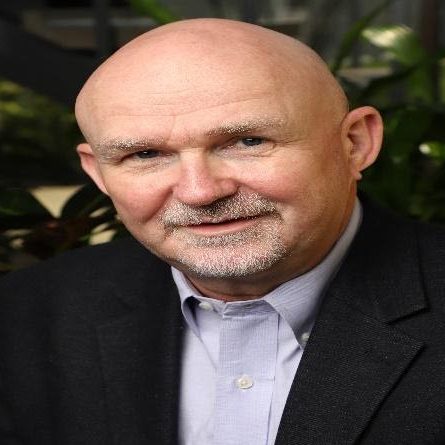
Barry K Logan, PhD
Dr. Barry K. Logan is Sr. V/P and Chief Scientist of Forensic Sciences at NMS Labs. He joined NMS Labs in 2008. He is also Executive Director at the non-profit Center for Forensic Science Research and Education (CFSRE) at the Fredric Rieders Family Foundation in Willow Grove, Pennsylvania. At NMS Labs he leads our team of forensic toxicologists and certifying scientists and is the laboratory director for NMS Criminalistics Laboratories in Pennsylvania, Texas and North Carolina.
Dr. Logan is a Fellow of the American Board of Forensic Toxicologists (ABFT), and has over 150 publications and over 600 presentations in forensic toxicology and analytical chemistry, including work on the effects of illicit and prescription drugs on drivers, and drug caused and related death. His current research priorities are focused on new drug trends, the opioid crisis, rapid reporting of drug mortality data, and the analytical and interpretive toxicology and chemistry of novel psychoactive substances, founding www.NPSDiscovery.org in 2018.
Dr. Logan’s other appointments include Executive Director of the Robert F. Borkenstein course at Indiana University, and at Arcadia University and Thomas Jefferson University in Philadelphia. He serves on the Advisory Board for NIDA’s National Drug Early Warning System (NDEWS). In recognition of his work and contributions, Dr. Logan has received numerous national and international awards, and served as President of the American Academy of Forensic Sciences (AAFS) in 2013-14.
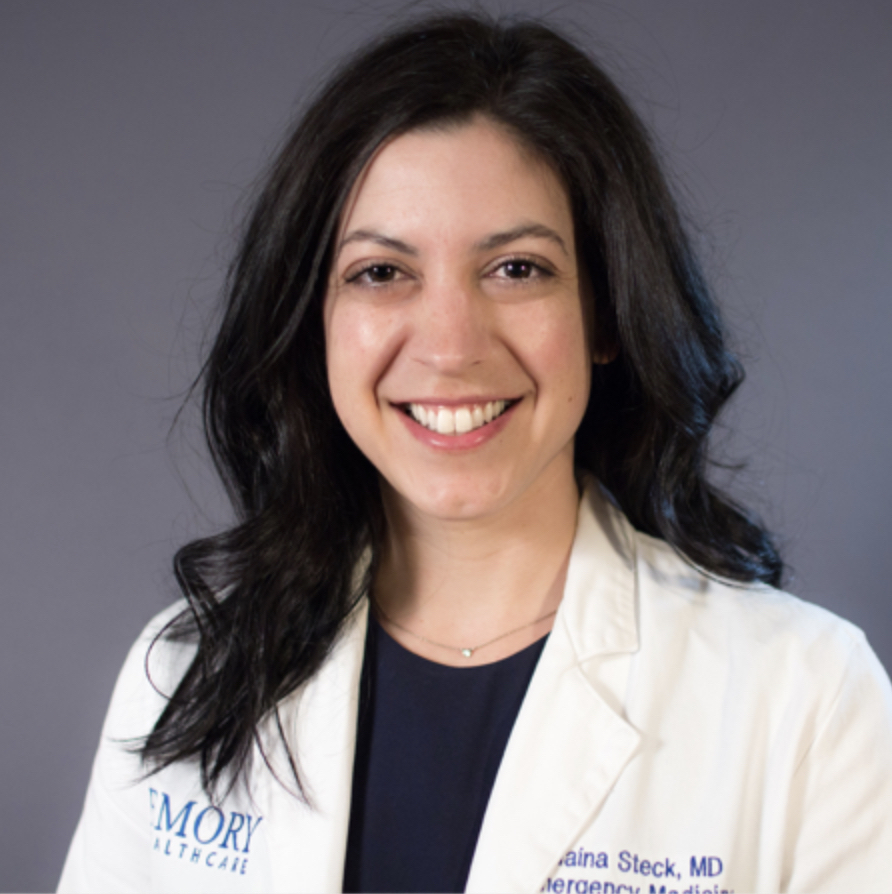
Alaina Steck, MD, FASAM
Dr. Barry K. Logan is Sr. V/P and Chief Scientist of Forensic Sciences at NMS Labs. He joined NMS Labs in 2008. He is also Executive Director at the non-profit Center for Forensic Science Research and Education (CFSRE) at the Fredric Rieders Family Foundation in Willow Grove, Pennsylvania. At NMS Labs he leads our team of forensic toxicologists and certifying scientists and is the laboratory director for NMS Criminalistics Laboratories in Pennsylvania, Texas and North Carolina.
Dr. Logan is a Fellow of the American Board of Forensic Toxicologists (ABFT), and has over 150 publications and over 600 presentations in forensic toxicology and analytical chemistry, including work on the effects of illicit and prescription drugs on drivers, and drug caused and related death. His current research priorities are focused on new drug trends, the opioid crisis, rapid reporting of drug mortality data, and the analytical and interpretive toxicology and chemistry of novel psychoactive substances, founding www.NPSDiscovery.org in 2018.
Dr. Logan’s other appointments include Executive Director of the Robert F. Borkenstein course at Indiana University, and at Arcadia University and Thomas Jefferson University in Philadelphia. He serves on the Advisory Board for NIDA’s National Drug Early Warning System (NDEWS). In recognition of his work and contributions, Dr. Logan has received numerous national and international awards, and served as President of the American Academy of Forensic Sciences (AAFS) in 2013-14.

Paul Wax, MD, FACMT
Dr. Wax is the Executive Director of the American College of Medical Toxicology. Dr. Wax received his B.A from Dartmouth College, his M.D. from the Mount Sinai School of Medicine, his Emergency Medicine training Draft University. He is Board-certified in both Medical Toxicology and Emergency Medicine and is a Fellow of the American College of Medical Toxicology.
Before joining ACMT in 2008 as its Executive Director, Dr. Wax had faculty appointments in the Departments of Emergency Medicine at the University of Rochester School of Medicine from 1991-2001 and the University of Arizona School of Medicine from 2001-2006. Since 2006 Dr. Wax has served as part-time faculty at UT Southwestern Medical School in Dallas, TX. In 2019 Dr. Wax received the Mathew J Ellenhorn Career Achievement Award in Medical Toxicology from the American College of Medical Toxicology.
In 2010 Dr Wax co-founded ACMT’s Toxicology Investigators Consortium, known as ToxIC. A multicenter research consortium and patient registry, ToxIC currently receives federal funding from CDC, NIH, and FDA.
